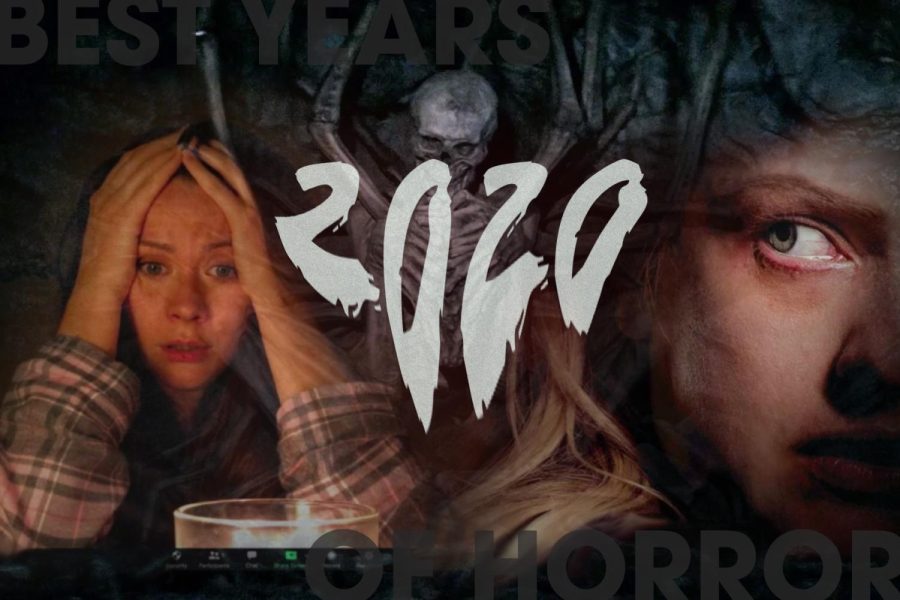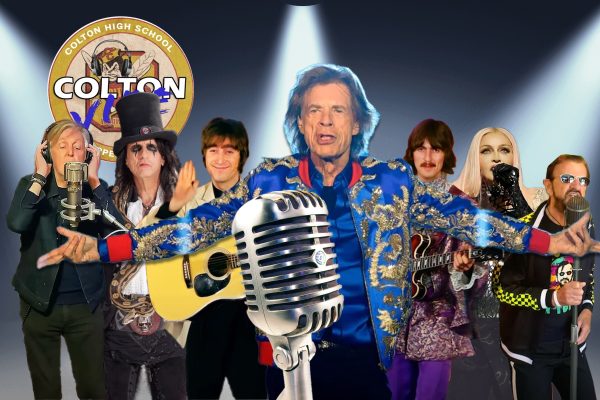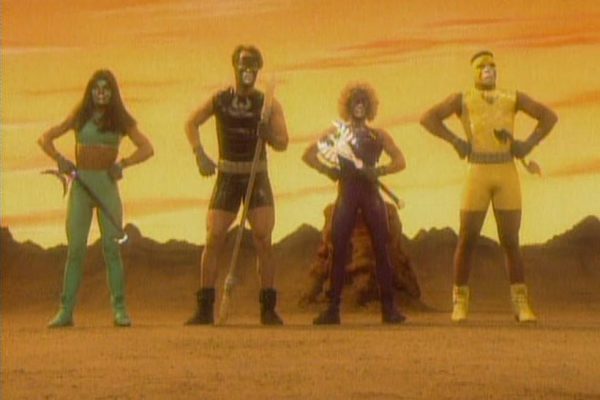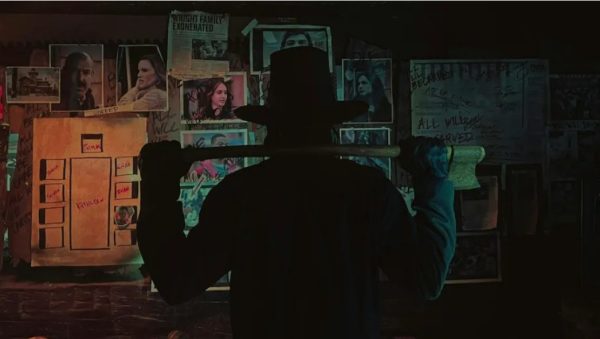The Best Years of Horror: 2020
With a global pandemic pushing everyone into quarantine, our movies reflected experiences of isolation and the terror of the unknown.
The global pandemic changed the face of horror movies in 2020, causing us to question our reliance on technology in movies like “Host,” our relationships in “The Invisible Man,” and our need for mystery in “The Empty Man.”
There were alot of many huge events going on during the year 2020, most notably a worldwide pandemic. Artists in every medium took time in quarantine exploring their crafts in ways to reflect the new times.
Musicians, painters, writers, performance artists . . . everyone found themselves in a new, uncertain world, surrounded by disease and the remnants of the life they knew before KN95 masks and toilet paper shortages.
This made it the perfect time for horror movies.
2020 was a strong year for horror film. With everything in lockdown and the future unclear, filmmakers embraced the terror and produced a number of unique and exciting movies to push the genre forward. Movies like Brandon Cronenberg’s “Possessor,” in which an assassin does her job by possessing others’ bodies and using them to do her dirty work, until she runs into an issue with a body that won’t cooperate.
Or, “The Dark and the Wicked,” where an estranged brother and sister find themselves drawn back home to mourn their dying father amidst some even darker, more deranged supernatural horrors. Or, “The Turning,” which takes on Henry James’ novella “The Taming of the Shrew” with a modern twist as a governess has to contend with the machinations of some strange children in quarantine.
This year will always be defined by the time spent indoors, spending our hours hiding from and trying to push away our fears of an invisible monster that took lives in record numbers worldwide. The three films here best encapsulate that time in our lives.
Host (2020, dir. Rob Savage)
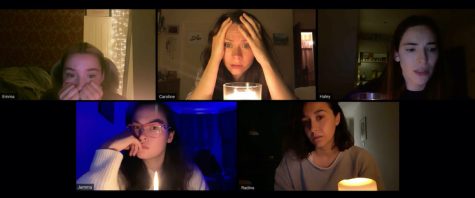
The idea of an internet-based social media horror was nothing new in 2020. Movies like the J-Horror “Pulse” (2001) and “Unfriended” (2014) had already cleverly showcased the horror sof living in a technological age. Unlike those films, Rob Savage’s “Host” had the extra benefit of being released in a world in which nearly everyone was communicating with their friends on a daily basis using services like Zoom.
And that’s when he gives us a supernatural force seeking violence summoned by a group of friends trying to stay in touch and avoid losing their minds during lockdown.
Suffice to say, that didn’t work, and the demonic spirit invoked begins taking lives, picking them off one-by-one like a slasher made of gigabytes.
The film also put the horror streaming service Shudder into the mainstream, as it was the first piece of original content from the service to drive traffic and invite new subscribers looking for a novel diversion of days spent learning how to play guitar, garden, or do their jobs from home.
“Host” was made for the moment, and the moment for it.
The Invisible Man (2020, dir. Leigh Whannell)

Leigh Whannell, whose previous credits included writing the scripts for “Saw” and “Insidious,” and writing/directing the bonkers sci-fi body horror “Upgrade,” entered the pandemic quarantine having just released the last film most people were able to see in movie theaters before they closed: his modern update of “The Invisible Man” starring Elizabeth Moss as a woman who believes she is being stalked by her deceased ex-boyfriend.
He meant the film as a horror for the #metoo era. For those who don’t remember, #metoo was a social media movement dedicated to giving women the opportunity to raise their voices about the sexual violence they have experienced in their lives. The movement was initiated with a bombshell story in the New Yorker magazine about the sexual crimes of movie producer Harvey Weinstein, at that time one of the most powerful men in Hollywood.
“The Invisible Man” puts Cecilia, Moss’ protagonist, in the awful position of being harassed by her ex-boyfriend, but she can’t prove it because he’s invisible. Is he a ghost? Is it something else? No one will believe her. Is she crazy?
By 2020, though, the feminist position of the movie was joined by something Whannell and his collaborators could have never predicted—that an invisible evil might actually be primed to torment us, dividing us, and driving us towards doom.
The Empty Man (2020, dir. David Prior)
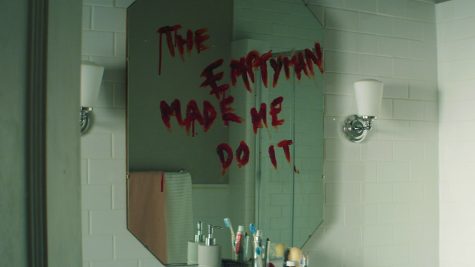
David Prior’s “The Empty Man” is perhaps the first cult film of the pandemic era.
The film, originally made in 2017 by 20th Century Fox, was shelved after the studio merged with Walt Disney Studios. That led to a strange period where Disney, not known for distributing horror movies, began dumping Fox movies in an attempt to clear the shelves.
So, “The Empty Man” got released in October 2020 into theaters no one wanted to go to in fear of dying. If they were going to risk their respiratory systems for a night out with movies and popcorn, it was going to be for Disney’s safer superhero films over a bizarre movie about an urban legend that destroys the life of a former detective after he begins searching for the missing daughter of a friend.
What no one, especially Mickey Mouse and his corporate friends, expected was that once “The Empty Man” hit video-on-demand, it would draw an audience.
In hindsight, all this makes sense. “The Empty Man” is a strange movie that implies things rather than explicitly showing anything. Is there an actual death cult behind all the missing kids? Or is there a real monster lurking in another dimension that opens up on a mountaintop in the Himalayas? The mysteries of “The Empty Man” draw you in and grip you tight until you find your circulation gone and your heart pounding.
Somehow, with life’s deepest mysteries surrounding everyone, with uncertainty and death looming everywhere, and with nowhere to go to deal with the existential terror, “The Empty Man”—like “Host” and “The Invisible Man”—became the perfect vehicle to project our fears and anxieties in 2020.
Recently, the CHS Publications Department experienced a major theft as over $20,000 in photography equipment was stolen from our studio over Spring Break. This included all cameras. Any amount you donate will help rebuild our program. Thank you!

Senior Johnathan Linares is a staff writer for the Pepper Bough at Colton High. His interests include music, sports, off-roading and the outdoors. In his...




